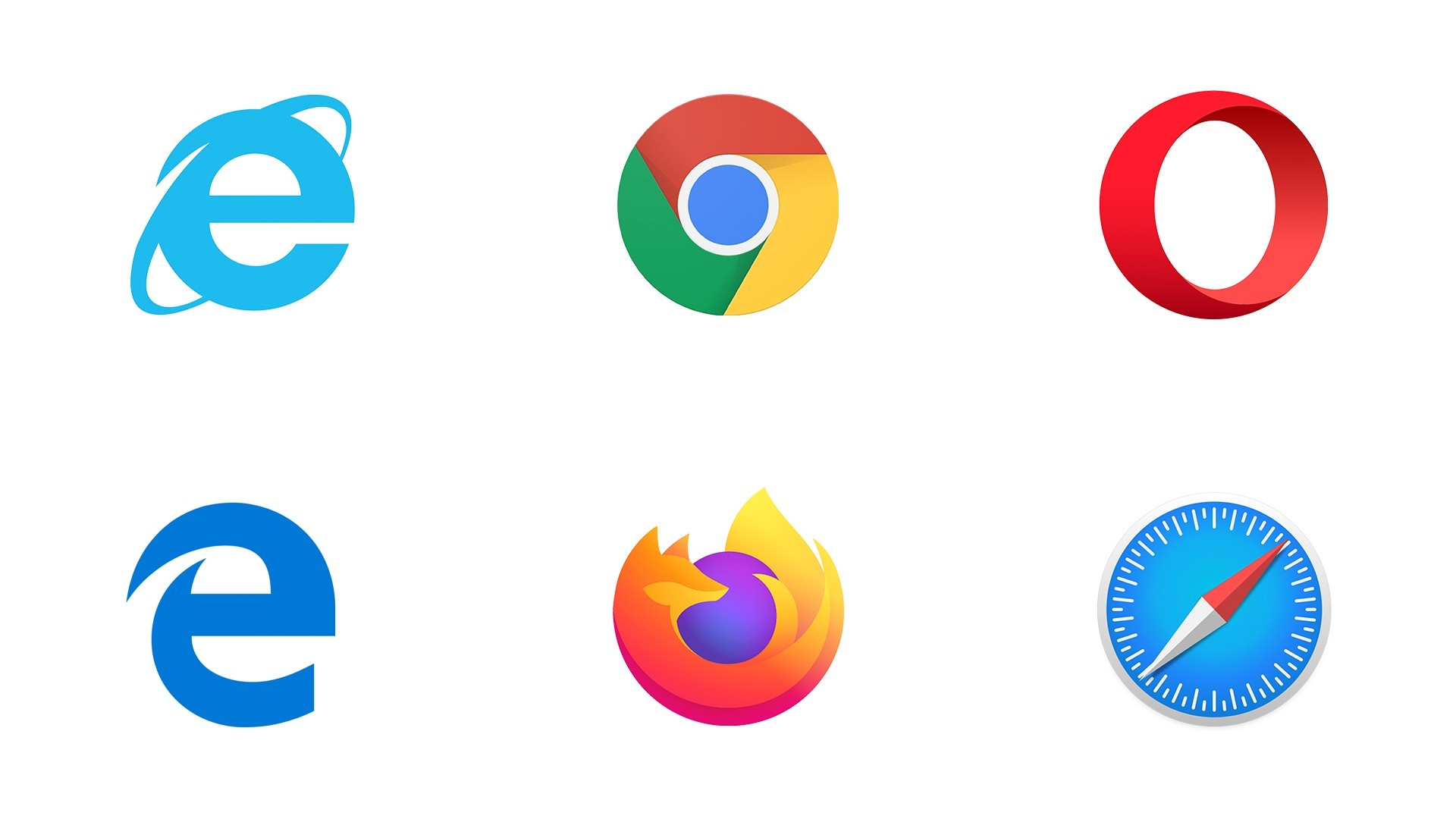How to choose the best cloud platform for AI
Explore a strategy that shows you how to choose a cloud platform for your AI goals. Use Avenga’s Cloud Companion to speed up your decision-making.

Introduction by Jacek Chmiel, Director of Avenga Labs
Mosaic was the first graphical browser I’ve ever seen and the hypertext was an impressive improvement over Lynx and text terminal, bold text, italic, fonts, and paragraphs – that were the cutting edge in 1993.
Netscape 1.0 – the pages had images embedded, images and text. Then, Netscape 2.0 and 3.0 were better, nicer, and faster.
Other browsers started to appear. At that time, all the major companies (i.e. AOL, Microsoft) attempted to create their own ‘internets’ to fight against the global public and free Internet. They failed miserably.
Internet Explorer (Mosaic based) was added to Windows in a very poor form, so not really a serious attempt. However clever analysts saw that it had to mean something, and it would affect the future of the web.
It took Microsoft four versions to create a viable competitor to Netscape. IE4 arrived on the scene (1998) and was faster and much more functional than Netscape, and Netscape started to lose market share rapidly.
More and more web pages were optimized for IE; it just worked for IE (around year 2000). Why? It was much more functional. Javascript and Document Object Model (DOM) APIs were far more reaching than Netscape, and IE was much more stable as well.
That time marked shifts from Windows desktop applications to browser based applications.
IE was embedded with dominating desktop OS – Windows and more and more business applications are now targeting IE only. IE versions differ, they are incompatible, and tons of hacks are required to make complex apps work properly. Slow JS engines are riddled with bugs. Total domination of IE on the public internet makes Linux people insane – they even have to use virtual machines with IE to access their web account or corporate applications.
Netscape was kind of reborn as Firefox – lighter, faster, and more visually appealing, for those who didn’t want to support the evil empire (Microsoft at the time). They are a visible and loyal community, however posing no danger to the browser behemoth like Internet Explorer.
Since the early days, there’s also been Opera on the background with its small but loyal community and high productivity features like tabs and keyboard shortcuts.
In 2008 Google Chrome arrived as a lightweight, ultra fast alternative – it’s like a supernova with a meteoric rise of the mind and market share. And word about it was spreading quickly. “Have you tried the new browser?” It had very limited functionality, but it was extremely fast and simple to use – that was the key. Finally, the IE killer arrived.
In the meantime, the corporations keep struggling with IE 8, IE 9, IE 10, and IE 11, along with compatibility hacks. IE had so deeply been embedded in Windows OS that sometimes virtual machines or graphical terminals were the only way to use business apps in the enterprise, due to different IE requirements.
It’s very hard to have different IE versions on the same machine as it makes things even more complicated.
Users want Chrome. They use Chrome at home and at work, except for legacy business applications (which they grew to hate because of the inferior user experience). So, the IE market share on the public internet diminished.
And guess what? The story is repeating itself again, with Chrome as the king of the browsers. More and more pages are optimized and work properly with Chrome, but only with Chrome, especially Google’s own services.
Chrome is considered heavy on the resources, RAM especially, and more like a virtual application platform than the lightweight browser it used to be. You have to accept it, because it’s getting more and more adventurous to use any other browser for banking, e-commerce, or to pay your bills online. That’s 2020 – it has happened, we are all here.
Even Apple users, known for their loyalty to the brand, use Chrome on their Macbooks more often than Apple’s default Safari browser.
I still remember the day when Opera decided to give up their own Presto engine and switch to the Chromium engine (called Blink today). Many followers felt betrayed by that move, while pragmatists appreciated Google Chrome’s compatibility, but it was at the expense of losing many Opera signature features. Opera was called a close sibling, like Google, but less Chrome.
Microsoft pushed their alternative browser Edge with little success. Again, Chrome’s domination and compatibility issues allowed only a few users to switch from Chrome to Edge. Microsoft loyalists still hated Google for their approach to privacy and were looking for a Google-less alternative, which played along with Microsoft Windows, which has a good system level integration, password sync, etc.
Developing your own web engine is expensive, web apps are complex and APIs are evolving fast. So, Microsoft decided to give up and abandon their own engine and created a Blink-based browser called Edge Chromium.
January 2020 marks the release of the first version of the Edge browser based on the new engine. From the browser battle perspective, it’s a win for Google, the major player in the technically open source project Chromium, but it’s dominated by a single maintainer.
So, basically, there are two fighters left: the privacy focused Mozilla with their Firefox browser and Apple with their famous Safari browser. Would they switch to Chromium and Blink engines as well? Only time will tell.
I bet Firefox, the much weaker financially of the two, will give up sooner than Apple. Apple is extremely focused on its tight grip of software running on their own hardware; they have deep pockets and will keep on “fighting”.
Maybe it’s good for all of us to have one browser engine to rule them all. Less testing, less compatibility issues, and you can still choose another browser on top of the common engine. Privacy-focused experts can even ironically say that you can still decide to whom you give all your browsing data – your entire digital life – is it Opera, Microsoft or Google?
Maybe it’s bad because it kills innovation when it’s too heavily controlled by one large business entity. I consider it another somewhat sad example of “the winner takes it all”, which is very typical of the internet and digital revolution.

Roland Guelle, VP of Technology at Avenga
Even though many web developers hate Internet Explorer, diversity in the web is a plus. I’m really impressed by the change of Microsoft (properatery->open source, sales driven -> tech driven), but a monoculture (Chromium/Blink based) on the web is not a good sign. If you don’t use Firefox, it’s the right moment to give this browser a second chance.
Felix Hassert, Director of Products at Avenga
In the efforts of an Open Source Community, there is a thin line between pluralism and redundancy. While the W3C used to propose standards that had been adapted by browser vendors slowly and loosely, we have seen the direction of change. Fast update cycles allow browser vendors to iterate over experimental innovation, finally leading to ‘living standards’ with much more imperative specifications. This has reduced a lot of Web development pain caused by fragmentation. Taking another (peculiar) implementation out of the browser pool will further ease that pain.
However, it is important for the health of the Web that this doesn’t come at the cost of speed, ingenuity, or freedom of innovation. If Microsoft is shifting their efforts from implementing a render engine to taking part more in the experimentation and standardization process, it could actually balance the powers behind the Chromium development. That said, Firefox and Safari will need to hold their places as the “good” and the “ugly” next to Chrome, which is the “bad” – despite all its celebrity contributors.
Kacper Ryniec, Head of Technology Avenga Poland
Diversity is an essential aspect of our life. Business and IT are no exception here. Therefore, the fact that competition in the web browsers market has just shrunk once again, does not make me particularly happy. On the other hand, like everyone who has ever had to deal with IE 6 or 7 glitches and incompatibility with W3C standards, I smiled and felt relief.
Being serious though, I hope Firefox and Safari will not follow Microsoft’s move. Especially considering the recent changes Google was introducing into Web Request API that are heavily utilized by ad-blocking add-ons. Single browser engines, developed by a company hugely relying on serving paid ads might mean we won’t be browsing the content we want, but the “content” Google wants us to browse.
While keeping my fingers crossed for Firefox and Safari, I must admit, I keep using Chrome for my daily tasks. I simply find it the most effective compared to the other two.
Pavlo Navalnyi, Web UI expert at Avenga
Most of the time, it’s a bad thing for consumers when a market loses one of its key players, especially when this market is so huge and has such a significant impact on our digital lives, but Microsoft was really struggling with bringing their browser up to speed with all of the modern standards on their own anyway, so, I believe, it was a right move for all of us. I’m glad to see Microsoft making the default browser of the most popular desktop operating system in the world a lot more performant, secure and less painful to work with or develop for.
As for Mozilla and Apple, they’re doing fine with their own engines and I can’t see them giving up on those any time soon, although Chromium project (and, hopefully, users privacy) could benefit a lot if the list of its maintainers got supplemented by more non-Google developers. Maybe, in that case, the Chromium home page could even drop three mentions of Chrome in favour of other Google-free alternatives.
* US and Canada, exceptions apply
Ready to innovate your business?
We are! Let’s kick-off our journey to success!